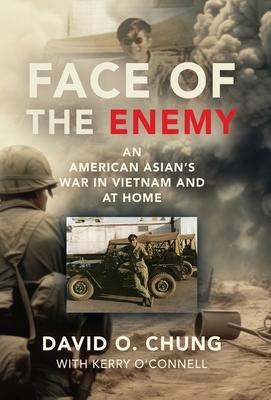Face of the Enemy is not your run-of-the-mill memoir. The second son of a mixed-race family of mainly Asian descent was challenge enough. His father's American values were overpowered by his mother's enforcement of the traditional Chinese culture of her homeland. His home life couldn't have been more dissimilar than the culture of 1960s Chicago that was just outside his front door. Out on the streets, his Asian face said, "I'm not one of you." At home, his status as the Number Two son said, "I am a servant."
Chung, Doc to his friends, quickly learned that he had two identities, and that he was trapped in between them. He had to fight, many times with his fists, to discover where his place was in his own country.
The Vietnam War was winding down when Chung joined the Air Force. As a transportation specialist for the United States Air Force in Vietnam, he made sure aircraft delivering supplies were loaded and balanced properly. How much trouble could there be? Plenty, as he discovered.
Many of his American comrades in arms viewed him with suspicion. He had the face of the enemy. The Vietnamese took one look at his American uniform and knew he was not one of them.
After coming home from Vietnam, Doc found his own country struggling to move on from an unpopular war. The public blamed the veterans, some of whom were struggling with the demons they had brought home with them. The only defense from the public shaming was for veterans to hide in plain sight. Uniforms were packed away. Nightmares weren't talked about. The only thing that remained the same for Doc was the racism and bigotry.
How do you overcome having the face of the enemy? How do you free yourself from the jaws of a trap that is part of who you are? Doc found the answer in saying yes. Saying yes to joining a fledgling company called Federal Express. Saying yes to joining veterans groups to help change the way Vietnam veterans were treated. Saying yes to the journey of driving the Vietnam Women's Memorial across the country to Washington DC. Saying yes to a position in the Veterans Affairs Office in Washington DC. Saying yes to changing his own life through helping others.
This is a memoir of an ordinary man with an extraordinary conviction to change the status quo, first through activism, and then through an uncanny understanding of how to navigate the bureaucratic obstacles of the United States government.
